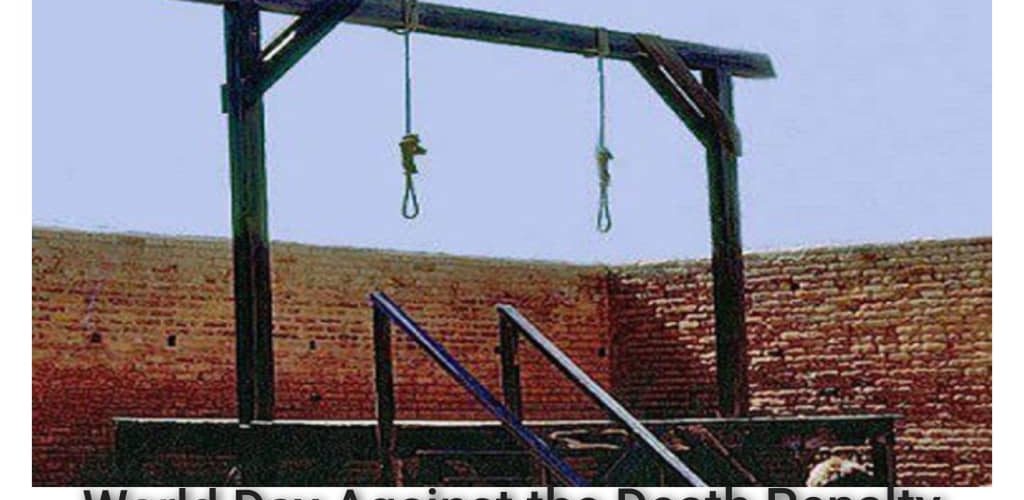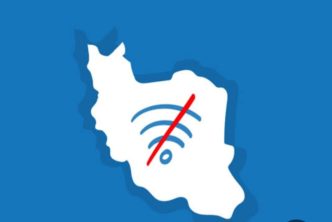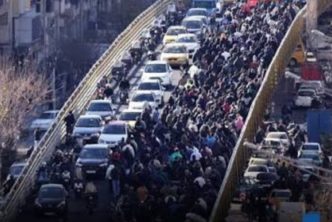Etemad Newspaper, Issue 6160, Saturday, 19 Mehr 1404,( October 11, 2025) pp. 1 and 9
By: Emad al-Din Baghi
This article is written with a Benevolent purpose and in the hope of attracting the attention of responsible institutions, especially judges and the judiciary, especially since Article 210 of the Fifth Development Program Law obliges institutions to make efforts to stop the process of issuing human rights resolutions against the Islamic Republic.
1- Every year, October 10 is an international day, and critical discussions about the death penalty rise worldwide. This is despite the fact that 142 out of 193 UN member states, or nearly three-quarters of the countries, have abolished or suspended this punishment and do not implement it, including a number of Islamic countries.
Of course, in practice, a larger number avoid implementing this punishment. For example, in 2017, 170 out of 193 UN member states did not have the death penalty. Among the remaining minority, only 4-5 countries, the United States, China, Iran, Saudi Arabia, and Egypt, have the highest figures, and executions in the rest of the countries are very few throughout the year, and in some they are less than the number of the fingers of one hand, while their populations are larger than Iran.
Among the four countries (the United States, China, Iran, Saudi Arabia), Iran has always been in the second or third place. Until two years ago, the number of executions in Iran fluctuated between 250 and 300 in the entire country, placing Iran in third place in terms of the ratio of executions to population, but in the last two years it has been in second place, which is a regrettable event.
Of course, if we accept the figure of more than 800 executions announced by the United Nations in relation to the population, we can say that Iran will be first and China will be the second, but I doubt the announced figures, especially since I know some of the sources that provide this information well and I think their data is not reliable and is mixed with political purposes for political propaganda. In fact, political forces, under the guise of human rights, channel international institutions. The lack of information from the government, the imposition of severe censorship, and the prevention of the formation of independent and monitoring civil society institutions in Iran also mean that international institutions have no choice but to trust contaminated data. Even if the announced data cannot be trusted, our anecdotal information shows that there is no doubt that the number of executions in the last two years has increased significantly compared to the past.
2- Before saying anything, I consider it necessary to mention a point to demarcate pseudo-human rights actions and pure actions. As someone who has had the oldest and most extensive written and practical efforts in the field of the death penalty, and my first article in the newspaper Neshat on this subject in September 1999 led to the newspaper being shut down and the writer, editor, and director in charge sentenced to prison, and after that, these activities continued with the publication of six books and dozens of articles and the quiet activities of the “Defenders of the Right to Life” Association, I would like to emphasize that our efforts in this field predate the new slogan of “No to the Execution” in Iran by several decades, and what I say and write in no way falls under the banner they have created with this slogan, because “No to the Execution,” although desirable in itself, has now become a political weapon of the opposition seeking overthrow, especially since media institutions, part of the opposition in the aggressive war of the United States and Israel against Iran, have become defenders of the killing of the Iranian people, and society does not accept that those who defended or remained silent about the killings in Gaza and Iran hypocritically appropriate the slogan of “No to the Execution.”
3- We constantly see news of executions on the judiciary website. These are apart from a large number of drug offenders, murders and other crimes that are not publicly reported and sometimes we hear about them through news that prisoners’ families give or prisoners send out. There may be indifference among the majority of society towards this news, but neither human rights activists nor the government itself can and should not be indifferent to these executions and their consequences.
4- Since I am not aware of the content of all the cases, I will not go into the nature of the cases. Perhaps some of the sentences were issued according to the laws of the Islamic Republic but are contrary to human rights documents, perhaps some of them are even controversial with the current laws in Iran. My argument here is not my human rights and jurisprudential theory of the complete abolition of the death penalty, which I have been pursuing for nearly three decades, which basically examines and negates the validity of the death penalty from a human rights and religious perspective. Rather, my argument is that no matter what your perspective (whether you are in favor of the death penalty or against it), the reality is that those sentenced to death are human beings, not insects or isolated beings.
Even if they are guilty and criminal, they are human beings who have families and relatives. You only need to go to the funeral of any of them to see some people mourning. When the number of executions increases, the number of mourners increases exponentially and has undeniable effects on society, especially if relatives, people around them, and citizens are not satisfied with the sentences issued and carried out, which fosters a spirit of revenge in society.
Unfortunately, executions have increased and the government seems to not care that each of these people has family and relatives, and if a way or excuse can be found, it would prefer not to execute anyone. Here, I repeat the suggestion that I wrote to Mr. Ejei a few years ago at the beginning of his tenure as the head of the judiciary and his request to receive the opinions of individuals, which was published in the newspapers.
The same problem arose in the 1960s, and at the suggestion of Ayatollah Montazeri, a high judicial committee was formed in Qom to review the death sentences issued throughout the country. Ayatollah Mohammadi Gilani, who was initially against the formation of the committee, later expressed his satisfaction with the formation of the committee and said that about 6,000 people had their death sentences overturned.
5- Logically, for those who believe in the principles of human rights (No arbitrary interpretations of human rights) and adhere to them, it is more appropriate to argue with the logic and standards of human rights, but for those who say they adhere to religion and religious rules, it must be emphasized that even what is happening is in conflict with religious standards.
In recent years, people have been sentenced to death for the crime of “moharebeh” and “bagye” while they were not considered examples of ” bagye ” and “moharebeh” from a jurisprudential point of view. (I can cite cases as examples and discuss and debate them).
In the rules of self-retribution, the obsessions and precautions that were emphasized by the Sharia are also not taken into account. Also, for crimes that are not fundamentally prescribed for the death penalty from a religious perspective, such as drug and espionage crimes (which are punishable by prison sentences and sometimes long and severe imprisonments all over the world), the death penalty has been issued by inappropriately generalizing the terms “corruption on earth” or “warfare”.
6- One of the most brilliant general rules of jurisprudence, which is very important, humane and valuable and is based on a narration from the Prophet of Islam, narrated by both Shiites and Sunnis, and agreed upon by Islamic sects, says: “Remove the hudud punishment from the Muslims as much as you can. If you find a way out for the Muslim, then make way for him; for the Imam, for it is better for him to err in forgiveness than to err in punishment”.
This statement, which has been in religious texts for hundreds of years, should be written in gold. The term “Hudud” refers to the punishments that the lawgiver has legislated, the quantity and quality of which for certain crimes. Moharebeh and corruption on earth are among the Hudud. The narration/rule mentioned says: As much as you can, keep the implementation of Hudud away from Muslims (use all your power to ward off Hudud). If there is a way to ward off Hudud, then release him [the accused], because if the Imam makes a mistake in pardoning someone, it is better that he makes a mistake in punishing someone.
Two points worth mentioning: First: I have explained in the book “The right to life” that although the popular saying is that there is a distinction between hudud and qisas, some jurists consider qisas to be a part of hudud. Second: The narration states: “Remove the hudud punishment from the Muslims as much as you can.” Because this order or law was issued in a situation where the absolute majority were Muslims, by Criticism, completion and generalization of the criterion(Tanghihe manat), especially the fundamental principle of the sanctity of blood in religion, it can be said that mentioning the word “Muslim” is an inductive exclusiveness and not a intellectual exclusiveness. In principle, it is the sanctity of blood that is relevant. At the same time, if we consider this rule to be limited to Muslims, the majority of those sentenced to death in Iran are also immune from the death penalty according to this narration, and a way must be found to commute their sentence.
If this same religious and authentic rule is implemented and instead of the death penalty, other severe punishments and long-term imprisonment are imposed, the number of executions will be greatly reduced, and the excuse for others to propagate and destroy against Iran will be taken away, the portrayal of Islam as a religion of violence will be prevented, and Iran’s image in the world will improve.





